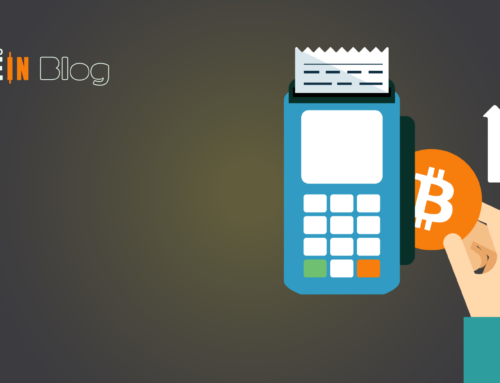Did you know that cryptocurrency is a ripe target for scammers these days? As the value of cryptocurrencies rises, so does the number of cryptocurrency frauds.
Cryptocurrency scams come in a variety of shapes and sizes, which is why so many unwary individuals and businesses fall for them.

What are cryptocurrency scams, and why do they matter?
Cryptocurrency trading is an exciting and lucrative industry, but it is not without its share of scams and frauds. According to reports, crooks have stolen investor funds posing as crypto exchanges.
These scams come in a variety of forms. They have been known to employ social media strategies to trick consumers into handing over their cryptocurrency cash, such as posing as online love interests or job offerings.
Users must understand who is requesting their crypto information at the outset. They should be aware of unsolicited and false offers and scams in order to protect themselves.
Given the exponential surge in reported cryptocurrency scammers, it’s more vital than ever to be aware of the most frequent types of scams and what you can do to avoid getting duped.

Top 6 types of cryptocurrency scams you should keep an eye on
Social media giveaway scams
It’s amazing how friendly everyone seems to be these days on social media sites like Twitter, Facebook, and Instagram. Scammers utilize psychological manipulation and deception in social engineering scams to acquire control of sensitive account information.
Scammers will often approach a potential victim from any angle or spend as much time as they need to build their trust and obtain critical information or money for the scammer’s digital wallet. It’s usually a hint of a scam when one of these trustworthy connections requests cryptocurrency for whatever reason.
Pyramid Schemes
A pyramid strategy requires the participants to put forth a bit more effort. The pyramid’s organizer is at the very top. They will hire a certain number of people to work at the level below them, and each of them will employ a group of their own.
A pyramid scheme is distinguished because it offers a guaranteed income in exchange for the recruitment of new members.
As the plan advances, the distribution expenses shift from the lower to the upper levels, resulting in a rising revenue stream for the pyramid scheme’s elder members.
The concept, however, isn’t long-term practical due to exponential growth. Participants may be forced to pay a fee for the privilege of offering a product or service.
Ponzi Schemes
In a Ponzi scheme, you might hear of an investment opportunity with assured rewards. Often, this scan is camouflaged as a portfolio management service.
The “returns” are just the money of other investors – there is no hidden mechanism at work here. The organizer will collect an investor’s funds and place them in a pool. The only people that contribute money to the pool are newcomers.
Newer investors’ money is used to repay elder investors, a cycle that can be repeated as additional newcomers join. When there isn’t enough money coming in to maintain paying out to older investors, the scam collapses.
Fake Mobile Apps
Crypto scams are disguised as fraudulent apps and occur in various forms. It’s easy to miss warning signs on fake apps if you’re not paying attention.
Typically, these scan artists get their victims to download harmful apps, some of which appear to be well-known. But these applications are designed to steal your cryptocurrency.
When users are provided with an address to refill their wallets or receive payments, they send money to a fraudster’s address. Of course, there is no way to reverse the process once the funds have been transferred.
The ranking position of these frauds is another factor that makes them highly effective. To avoid being a victim, only download from the official website or a link provided by a reliable source.
Phishing
Phishing schemes are common in the cryptocurrency industry. Scammers are particularly interested in crypto wallet private keys, which are the keys that allow users to access funds stored in the wallet. It can occur over the phone, through email, on a fake website, or through messaging apps.
You may receive emails informing you that something is wrong with your exchange account and that you must click on a link to resolve the issue.
That URL will redirect you to a counterfeit website that seems identical to the actual one and prompts you to log in. Once the hackers obtain this information, they will be able to steal the cryptocurrency stored in the wallets.
Vested interests
Never take someone’s advice on which cryptocurrencies or tokens to buy at face value when investing. They never divulge their true motivations. They could be paid to promote a particular ICO or have a significant personal investment.
This applies to everyone, from casual acquaintances to well-known celebrities and influencers. There is no certainty that any endeavor will succeed. Many wills, in fact, fail. Everyone should use their strategy for researching potential investments.

How to avoid cryptocurrency scams?
The question is: How can you avoid being a victim of a cryptocurrency scam?
Before you go all-in, here are a few things to think about:
– Don’t believe everything you’re told. Examine any claims made about investment, especially if they appear too good to be true or promise huge returns in a short period of time.
– Examine the URL of the websites you are visiting.
– Make a list of the websites you visit frequently and save them to your favorites.
– If you have any doubts about a message you’ve received, contact the company or individual via official channels.
– Nobody should ever have access to your private keys or seed phrase.
– Do not believe anyone who contacts you personally and asks for cryptocurrency payments or offers you an “investment opportunity.” This includes government authorities, public figures, and strangers.
– Whenever possible, enable two-factor authentication on any cryptocurrency wallet or exchange you use.
To wrap up
We hope you’ve learned that scan artists prey on greed or fear, expecting you to move quickly and make a snap decision.
We only outlined a few of the most typical cryptocurrency frauds in this article. The truth is that con artists are always coming up with new ways to defraud people, so you must be cautious.
If you have any questions or concerns, we are always here to address them.


![Top 5 people in crypto you should start following today [2022 edition]](https://cryptodivein.com/wp-content/uploads/2022/05/220527_Top-5-Influencers_0-500x383.png)
![Complete Guide for Blockchain Technology [2022 Edition]](https://cryptodivein.com/wp-content/uploads/2022/05/220518_Guide-for-Blockchain-Technology_0-500x383.png)